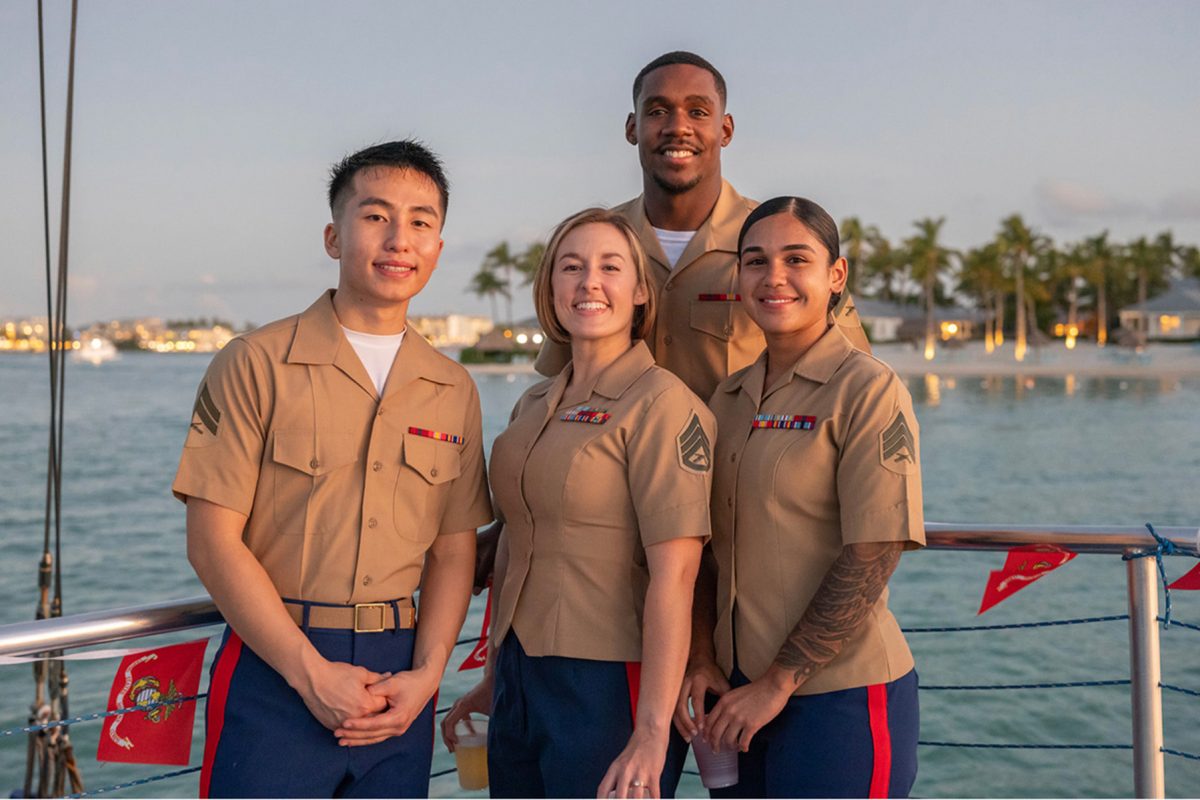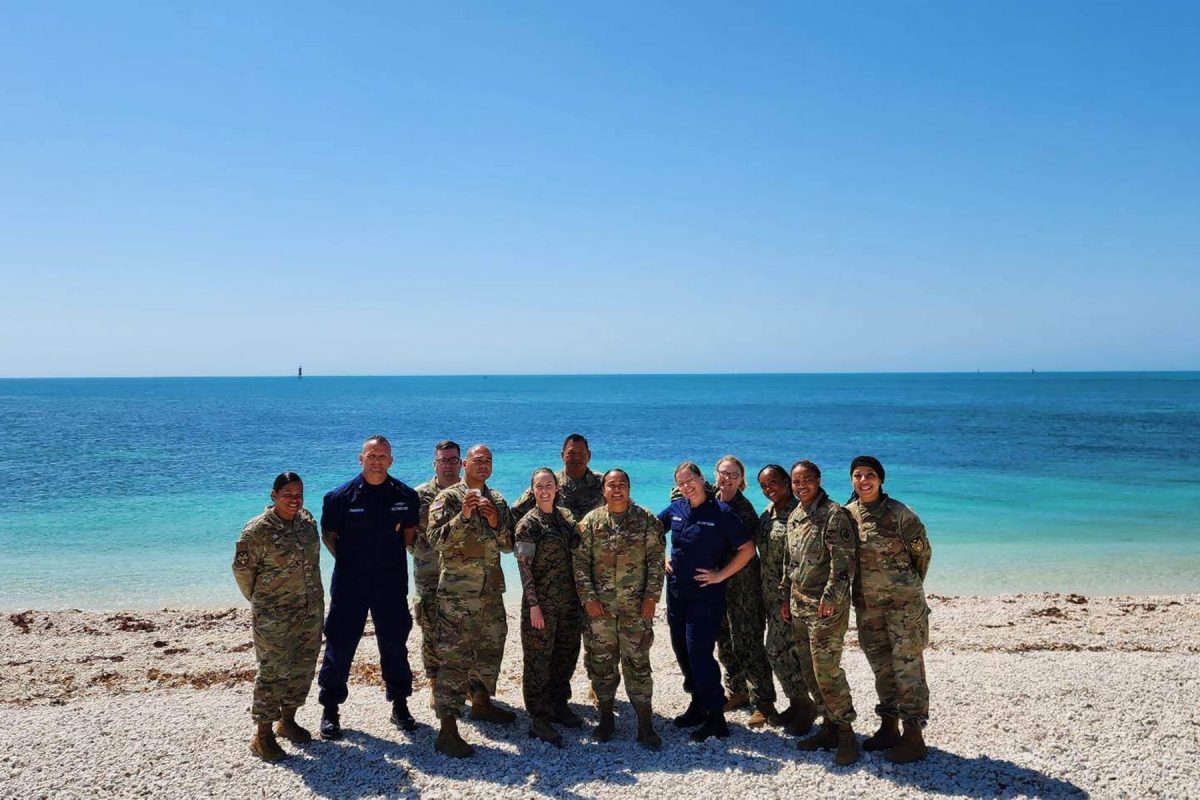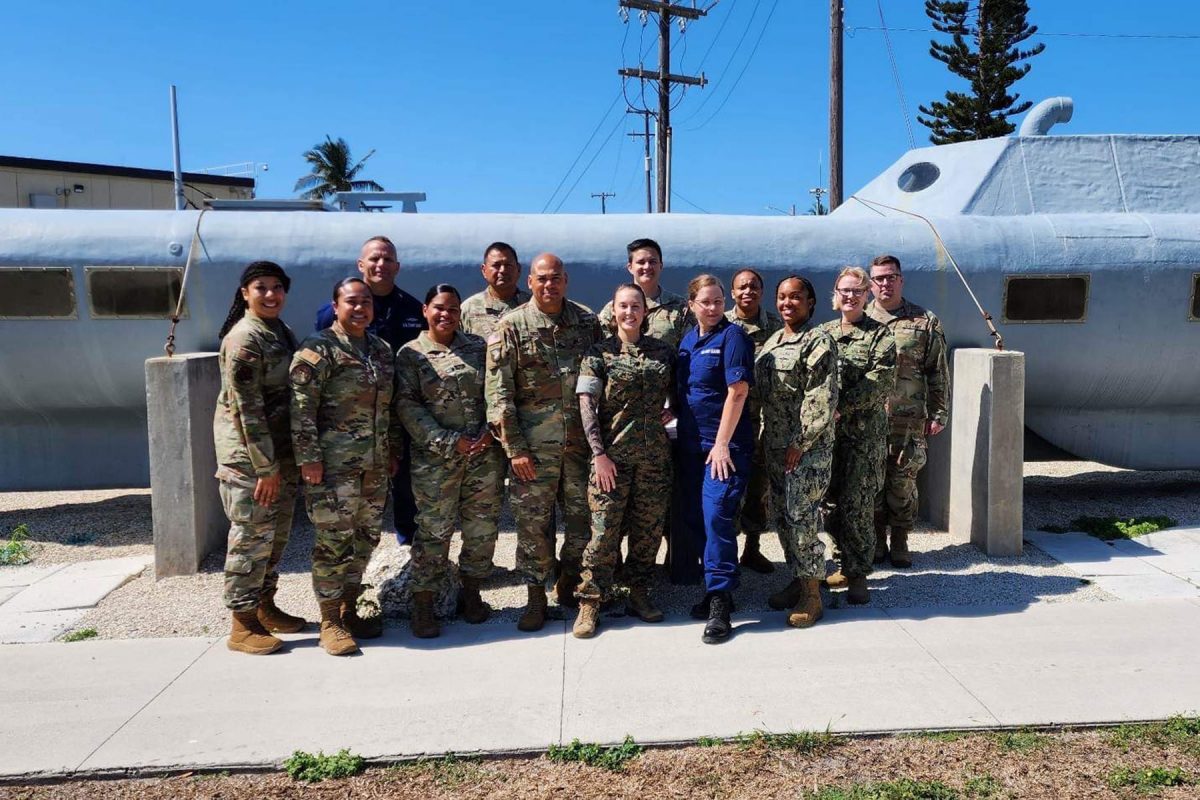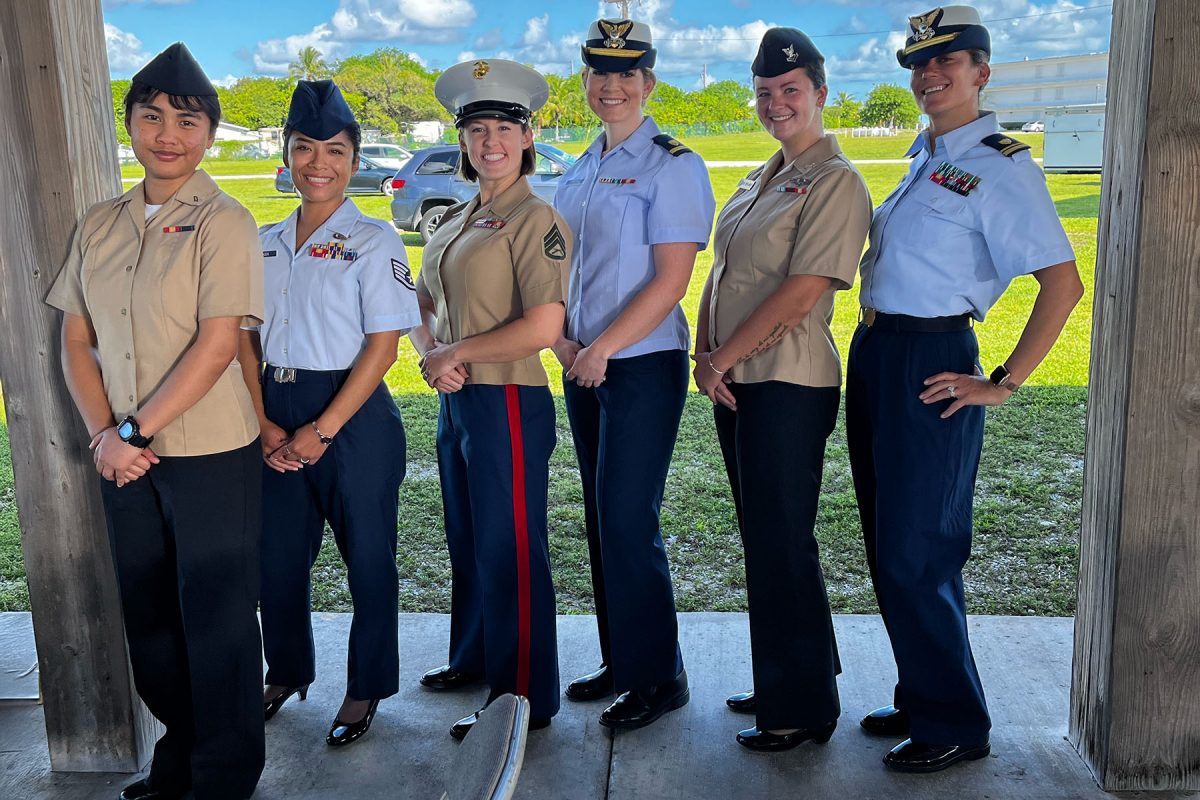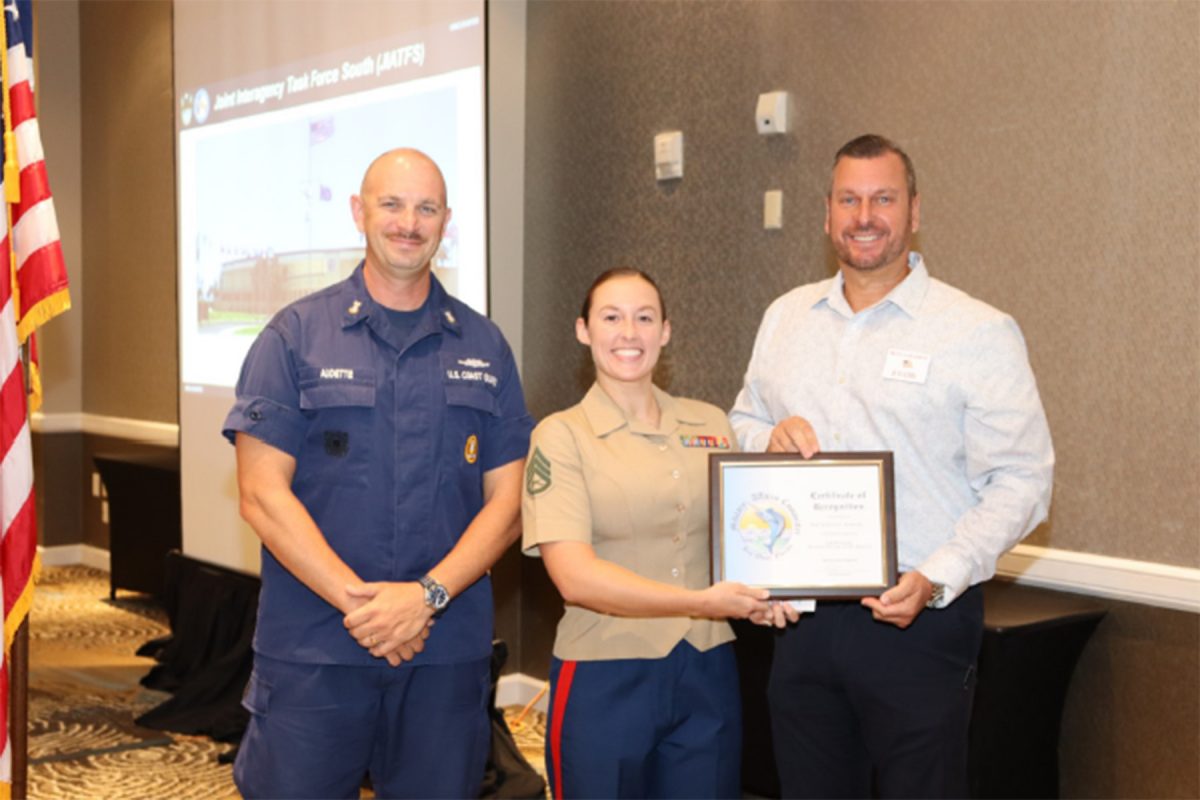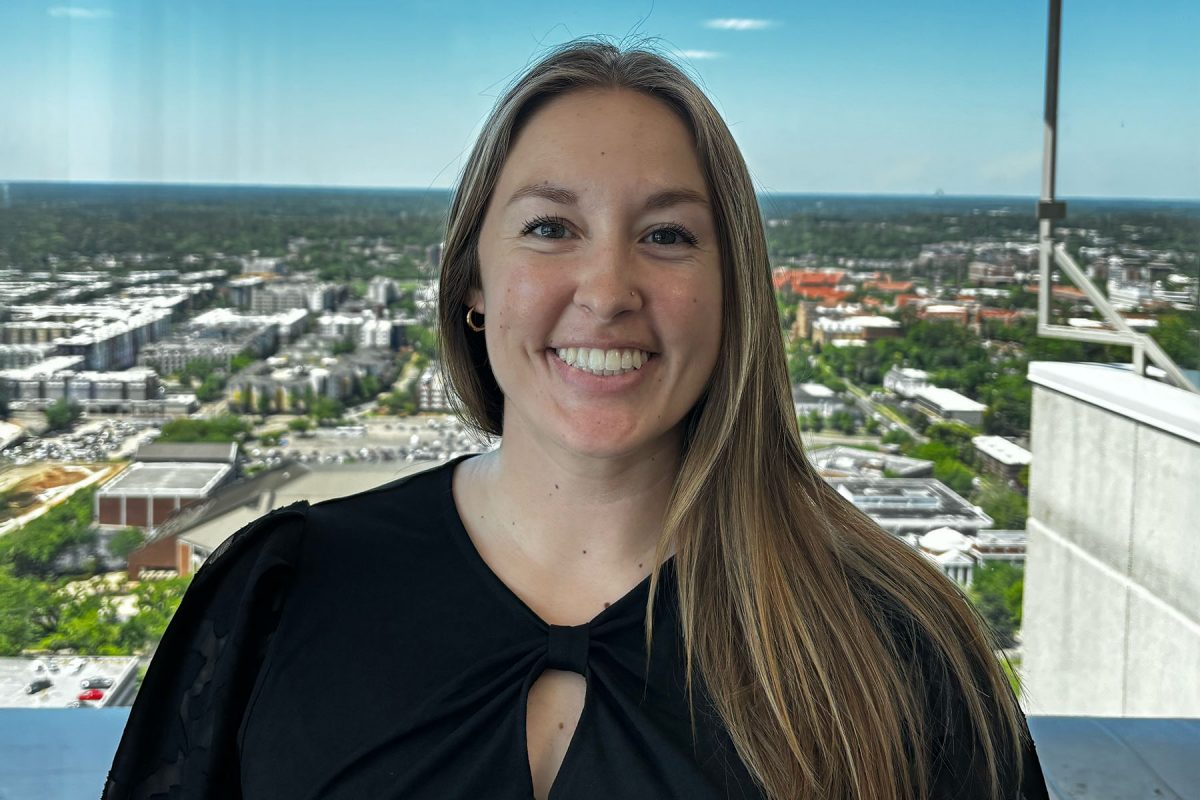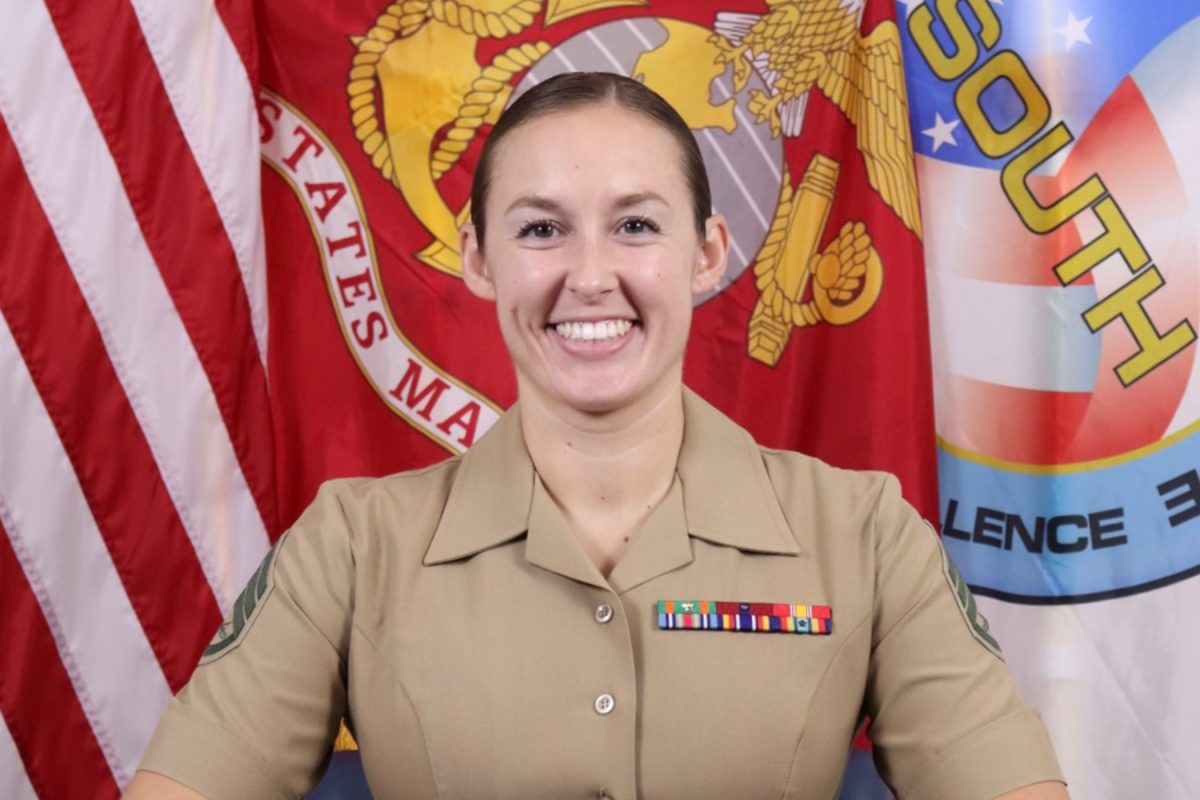
“The best part of being at FSU is the pride that comes with being part of such a notable university. The people here are wonderful, and while the coursework is challenging, it’s high quality. For me, being able to say I’m a part of FSU means a lot.”
Fast Facts
- Favorite Coffee Spot: CowHaus Coffee Co. in Monticello, Fla.
- Favorite TV Show: Friends
- Favorite Place Visited: Jerusalem, Israel
- Favorite Local Restaurant: Sass in Thomasville, Ga.
- Football Highlight: Invited by the Student Veterans Center to step out onto the field during a football game
Gabrielle Dybalski, a graduate student in Florida State University’s master’s clinical social work program, brings a wealth of experience from her nine years in the U.S. Marine Corps, where she rose to staff sergeant (E6) as an intelligence specialist.
Her time at FSU has been defined by her commitment to service and involvement with the FSU Student Veterans Center, which she credits for easing her transition from military to academic life.
Dybalski continues to draw on her leadership background and dedication to helping others as she builds skills and serves both the campus and the broader community.
What experiences shaped your path to military service and becoming a student at Florida State University?
I was homeschooled from kindergarten through 12th grade but participated in Reserve Officers’ Training Corps (ROTC) at my local school thanks to a Florida policy that allowed homeschoolers to join certain programs. That experience introduced me to the military structure early on. After high school, I joined the Marine Corps and served for nine years as an intelligence specialist. I reached the rank of staff sergeant E6, and during my time in service, I developed a strong sense of leadership and responsibility. Toward the end of my service, I started college while still in the military. I earned my associate degree and then made my way to FSU to pursue a degree in social work.
I didn’t always know I wanted to join the Marine Corps. My older sister was in ROTC, and I got into it because she was doing it. I saw it as a way to serve on behalf of my family. I chose the Marine Corps because I felt I had something to prove and if I was going to serve, I wanted to go all in — and you don’t get tougher than the Marines.
What inspired you to pursue social work, and why did you choose FSU?
When I was finishing my time in the Marine Corps, I started thinking about what I loved most about my time in service. What stood out to me was being a supervisor — taking care of Marines, helping them with everyday tasks and supporting them through tough times. In the military, you’re involved in every part of your service members’ lives, from helping them file taxes to teaching them how to budget or even do laundry. Through that, I saw a lot of trauma and hardship, and I realized I wanted to continue helping people in a meaningful way. Social work felt like the civilian path that aligned with everything I valued in the military.
I chose FSU because of the strength of its social work program. I was looking for an accredited program that would prepare me well for licensure and future practice. FSU had everything I was looking for academically, and I knew it would give me the foundation I needed to succeed. The best part of being at FSU is the pride that comes with being part of such a notable university. The people here are wonderful, and while the coursework is challenging, it’s high quality. For me, being able to say I’m a part of FSU means a lot.
How did the Student Veterans Center help you navigate life after your military service?
The Student Veterans Center has been incredible. I wish I had taken advantage of it earlier in my time at FSU. It wasn’t until I connected with another veteran in the social work program that I got more involved. Being around other veterans who understood the transition from military to civilian life made a huge difference. When I left the Marine Corps, I began school one month later, and the culture shock was intense. The Veterans Center helped me find community, especially since I was older than most of the students in the bachelor’s program. That connection was something I really needed, and it helped me feel grounded.
If I were to give advice to other veterans pursuing education or attending FSU, I’d say: lean into other veterans. One of the challenges we face is that we’re used to being plugged into a unit — we don’t have to go out and find community because it’s built in. But at FSU, you have to take that initiative. Go to the Veterans Center, talk to other veterans and make those connections. It takes effort, but the reward is tremendous. It’ll help you get through your time at FSU with a better experience and a stronger support system.
What are you doing now, and what are your goals for the future?
I’m currently interning at Georgia Pines as part of their accountability court program. I’m working as an intern therapist, doing therapy sessions and assessments with justice-involved individuals. Many of them are dealing with substance use disorder. It’s been a powerful experience working with people who aren’t always excited to be there but who often take full advantage of the opportunity. I’ve learned so much, and it’s reinforced my commitment to helping people through difficult circumstances.
When I started the program, my goal was simple: finish my degree so I could go back and serve service members — whether active duty, reserves or veterans. That’s still a big part of my plan. But through my internship and work in correctional settings, I’ve seen how much need there is in those environments too.
Through serving others in this professional capacity, my faith, specifically my personal relationship with Jesus Christ, has grown. I feel called to go where people usually don’t want to go and love them as the Savior would. I want to help people move forward, heal and find hope, even in places where it’s hard to come by.




